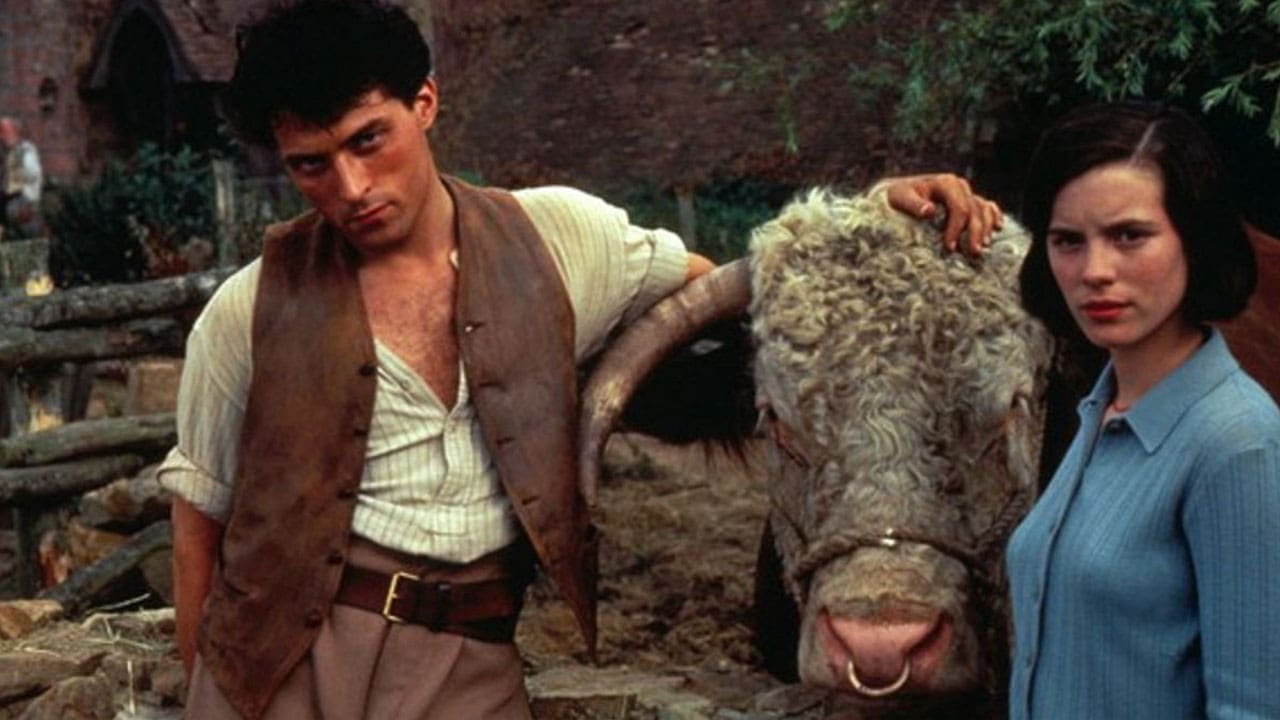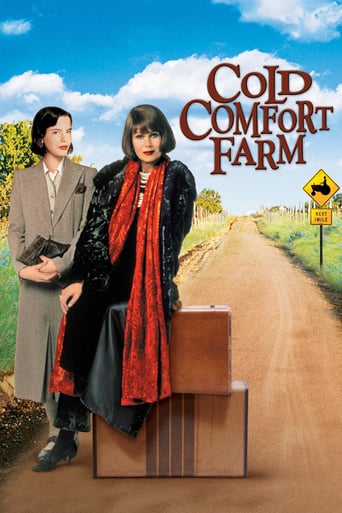

the leading man is my tpye
... View MoreI have absolutely never seen anything like this movie before. You have to see this movie.
... View MoreA story that's too fascinating to pass by...
... View MoreThis film is so real. It treats its characters with so much care and sensitivity.
... View MoreThis movie is based on a fantastic book but it is also worthy to hold the title, "Cold Comfort Farm" on it's own. Rarely are films as good as the book they come from (especially when the book is a classic - as this one is) but this movie can stand up beside the literature from whence it sprang "as a distant orb". Thus it gets my 10 out of 10 rating. The story of a young, single woman in upper British society who doesn't really know what to do with herself. So she decides to go and live/inflict herself on some distant relatives on "Cold Comfort Farm". Why? "Because they sound interesting" she concludes upon reading their response to her letter. Let the weirdness, ridiculousness and laughter begin. But it will also need a good dose of kindness and sensitivity, which is woven liberally in between the hilarity. Our heroine (played by the ever fresh Kate Beckinsale) ends up changing everyone's life for the better and in the end, her own as well. But this is NOT heavy drama. This story is for pure fun and those wanting a good time, the line starts here. And let me prepare you, there are so many great phrases that are entrenched in the true to life events that you will definitely want to view this movie with several friends. The phrases will remain "in" jokes and be quoted by all in attendance for ... ever (as it was in the case of my family). The great dialogue makes you laugh, ponder and try to apply it to any and every situation from there after. But remember no matter what you do, don't look in the wood shed. Because I saw something nasty in the wood shed. Or was it the garage? Or the barn? Or the bicycle shed? ~~~ by Laura-Lee
... View MoreLoved this movie. Loved the book and was totally impressed with how they adapted it, nothing was lost.The story is simple: Set in England, sometime around the 1930's - a young woman, Flora Post, is left with a very small annuity after her parents die. She needs to either find a suitable job, or find some suitable relative with whom to live.After she sends out enquiries to a number of relatives and receives responses, she decides to go to her country cousins, the Starkadders.Flora has no qualms about setting off on this adventure, but her cousins have NO idea of what they have let themselves in for.We join her on her adventures and are completely sucked into the story and the surroundings. Nothing defies her, nothing worries her, she sails through the lives and routines, gloom and joy of her cousins and their associates with the greatest of ease and comfort.Flora loves to organize things, and she relentlessly creates order from chaos at Starkadder Farm, in a charming way.There is so much to love about the story itself which is lightheartedly and gently making fund of a certain time in British history.The acting is amazing, the casting is incredible. The pacing of the movie is great - not for one minute does one feel bored or restless. We have seen it 5 or 6 times and it retains its charm.Highly recommended for fans of the out of the ordinary, or British humour.
... View MoreIt is the 1930s, and London gadabout Flora Poste (Kate Beckinsale) has just been orphaned. With no options or ambition (except to experience life and become a writer), she goes to live in the country with distant relatives. Upon arriving at the dilapidated farm, she finds its inhabitants are all gloomy, filthy, wretched oafs, so naturally she sets about improving their lives.This basic plot has been done before, most notably in "Amelie," but this BBC movie is terrible. There's no humor, the characters are all off-putting, and the changes Flora brings about - including turning a spaced-out naïf into a debutante, a deranged hermit into a fine lady, and a bumbling farm hand into a Hollywood star - are completely unbelievable. As Flora, Beckinsale is flat and tiresome and the relatives are reduced to English hillbillies. This is a tedious and unappealing movie.
... View MoreOh how I loved this movie. It's movie heaven to me. It's funny, romantic, escapist, and has a happy ending. It left me feeling happy and energized. I just got the DVD and hadn't seen the movie before, and I was delighted. This is the sort of movie the Brits excel at: it's subtle, not violent, has superb performances, has a wry, intelligent script, the cinematography is visually beautiful shots of the British countryside, and the score is lovely and sets and matches the tone of the movie. It's low key and humanistic as opposed to Hollywood mainstream blockbusters with their explosive special effects. Farm doesn't have any special effects but is a delight because of the witty, intelligent script, superb acting, and visually gorgeous cinematography.I recommend turning the subtitles on if you're watching the DVD because the British accents and slang make it easy to miss words and lines without the subtitles.
... View More